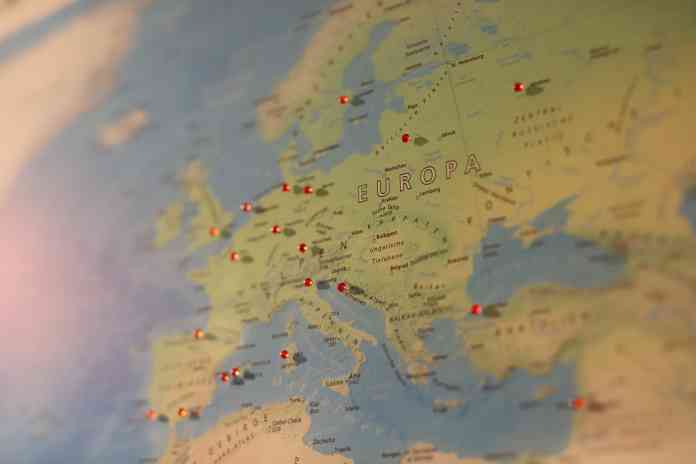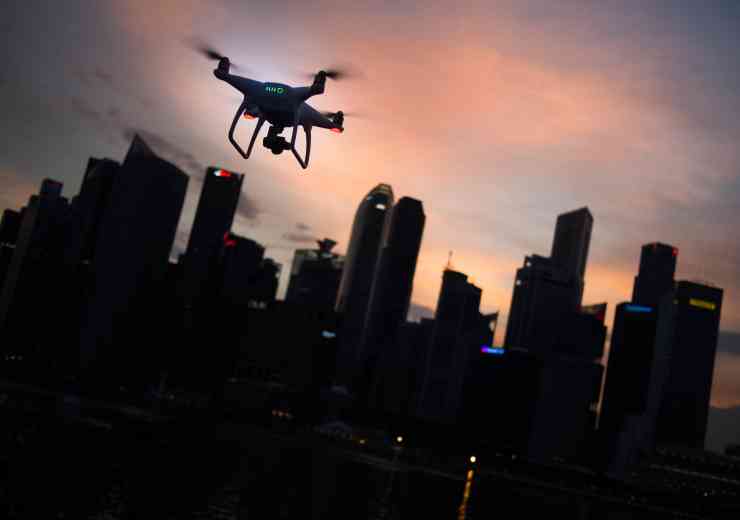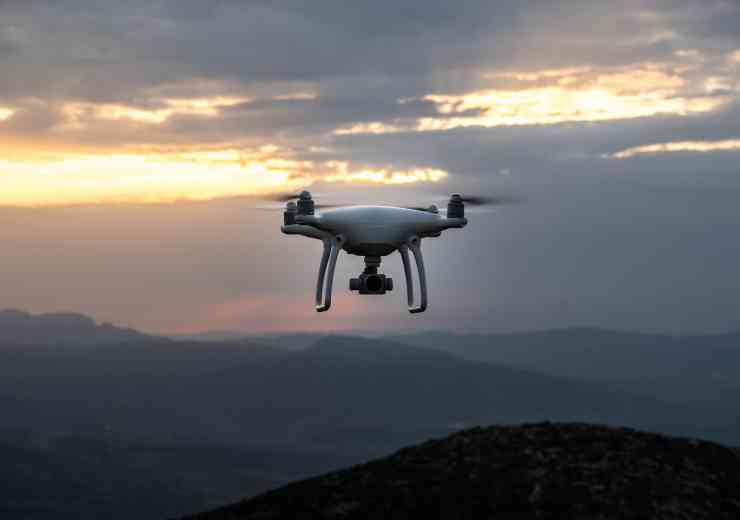
Belarus brings ‘air piracy’ to Europe: How states target an individual to threaten all their critics
State sponsored terrorism has a long and ugly history but not one usually associated with European states. That all changed on Sunday 23 May when Ryanair flight FR4978 from Athens to Vilnius was diverted to the Belarus capital Minsk.
Belarusian authorities scrambled an ancient Soviet Era MiG-29 fighter jet to intercept the EU-registered aircraft on the pretext that there was a bomb on board. As we now know the actual purpose of the mission was to arrest Roman Protasevich, a long-time critic of Belarusian President Alexander Lukashenko.
Protasevich, a journalist and fierce opponent of the Lukashenko regime, has lived in Lithuania since last year’s election and the subsequent crack-down on dissidents. The order to force the Ryanair flight to alter its intended course is thought to have come directly from President Lukashenko himself.
There are reports that members of the Belarusian KGB who were shadowing Protasevich joined the flight in Athens and played a part in his arrest. Apparently, the Belarusian secret service is still known as the KGB; an example of Lukashenko’s love of the former Soviet Union.
UK lawmaker, Tom Tugendhat described the event as ‘air piracy’ and a ‘hijacking’.
Thorn in the side of the regime
Protasevich has been a thorn in the side of the Lukashenko regime for many years. As a teenager he was expelled from school for organising a protest, but more recently it has been his work as a journalist with Nexta that has provoked the wrath of the authorities. Nexta, which has around two million subscribers, uses Telegram, the instant messaging platform, to disseminate their stories and to sidestep state censorship. Their work has brought thousands of protesters on to the streets of Minsk.
Nexta was founded by Protasevich and Stepan Putilo, sometimes called Stepan Svetlov. Both are on the Belarus list of ‘individuals involved in terrorist activity’, a crime that can carry a 15-year jail term. When Protasevich was arrested fellow passengers described him as shaking with fear and looking ‘super scared’. One of them, Monika Simkiene, told the AFP news agency: "He just turned to people and said he was facing the death penalty." His girlfriend Sofia Sapega was also arrested at the same time.
Grizzly Russian bear
The elephant in the room here, or perhaps the grizzly Russian bear, is Vladimir Putin’s Russian Federation. EU leaders demanded the immediate release of Protasevich. With EU council chief Charles Michel saying: “We won't tolerate that one can try to play Russian roulette with the lives of innocent civilians.” His phrase was apposite and barely concealed code that Russia is the big mover and shaker behind the Lukashenko administration.
In 2020 Putin backed Lukashenko, in the wake of widespread protests that followed the election that many believe was stolen by Lukashenko. The Russian premier promised a $1.5 billion loan and said he had created so-called law enforcement officers to help ensure Belarus security. Russia provides Belarus with cheap oil and gas and is seen as a useful buffer between Russia and EU member states. In the past Putin has called for full unification with Belarus, but that may be a step too far for the self-aggrandising Lukashenko.
Lukashenko may have ordered the Ryanair flight to be intercepted without any prompting from Putin, but Russia has been quick to praise his actions. Sergei Lavrov, the Russian Foreign Minister said Belarus had treated the incident with an 'absolutely reasonable approach'. In the Moscow Times Lavrov is quoted as saying: "A representative of the Belarusian foreign ministry... stressed the readiness of the Belarusian authorities to act on the issue in a transparent manner and to follow all international rules.” Margarita Simonyan, in charge of state-backed Russian TV channel RT said Lukashenko had 'performed beautifully'.
Leonid Kalashnikov, from the Russian parliament said that Belarus should deploy ‘those methods that it considers feasible and necessary’ to defend its national security. He went on: “It’s an independent state. If they see a threat to their security, then they must fight this threat.”
The Salisbury poisonings
Of course, when it comes to state terrorism Russia has form. In 2018 it is widely believed that former spy Sergei Skripal and his daughter Yulia we poisoned at their home in Salisbury UK by agents of the Russian state. Novichok was the weapon of choice, a nerve agent developed by the Soviet Union during the Cold War.
It is thought that Skripal was a double agent providing MI6 with information while working for the GRU or Russian Military Intelligence. Not surprisingly the Kremlin fervently denies the accusation that they had anything to do with the attempted assassination.
Deliberate coercion and violence
In the book Contemporary State Terrorism: Theory and Practice a group of academics proposed a definition of state terrorism:
“Terrorism by the state (or non-state actors) involves deliberate coercion and violence (or the threat thereof) directed at some victim, with the intention of inducing extreme fear in some target observers who identify with that victim in such a way that they perceive themselves as potential future victims. In this way they are forced to consider altering their behaviour in some manner desired by the actor.”
Using this definition, they went on to suggest four key elements that comprise state terrorism:
• There must be a deliberate act of violence against individuals that the state has a duty to protect, or a threat of such an act if a climate of fear has already been established through preceding acts of violence.
• The act must be perpetuated by actors on behalf of or in conjunction with the state, including paramilitaries and private security agents.
• The act or threat of violence is intended to induce extreme fear in some target observers who identify with the victim.
• The target audience is forced to consider changing their behaviour in some way.
All of which is a perfect illustration of what the Belarusian authorities were trying to achieve when they arrested Protasevich; sending a clear message to other dissidents that a grave fate awaited them should they continue their activities.
The same being true for any past or present Russian spies who might be tempted to sell their secrets to the West. This type of state terrorism is never directed at one individual but rather at all those who have similar intentions and are seen as an enemy of that state.
Extra-judicial killing
The same argument applies to the extra-judicial killing of the Saudi journalist and critic of the Saudi government Jamal Khashoggi. He walked into the Saudi consulate in Istanbul to obtain a divorce document enabling him to marry his Turkish girlfriend Hatice Cengiz. He had previously visited the consulate but was told to return a few days later to collect the necessary document. Armed men were wating for him.
The Saudi government claim he was killed as part of a ‘rogue operation’ carried out by officials trying to persuade him to return to his home country. Turkish authorities believe the killing followed direct orders from the highest echelons of the Saudi government.
Khashoggi had been a close ally of the Saudi royal family and an adviser to the government. Latterly he fell out of favour and relocated to the United States where he wrote increasingly hostile articles criticising the Kingdom’s deputy prime minister and effective ruler, Crown Prince Mohammed bin Salman.
In one of his early pieces in the Washington Post he expressed fears that his life might be in danger. He was right and his killing was a clear message sent to others who might be similarly inclined to criticise the kingdom’s government.
Failed states
On 4 May 2021 a report was made to the US Congress on State Sponsors of Acts of International Terrorism. Four countries were identified: Syria, North Korea, Iran and Cuba. Few would argue with the claim that both Syria and North Korea should be on the list. Both are effectively failed states.
Iran is a trickier call and had been part of an effort to bring the country back into the fold. In July 2015, the United States, China, France, Germany, the Russian Federation, the United Kingdom, European Union, and Iran agreed to a Joint Comprehensive Plan of Action (JCPOA). Iran pledged to ensure that its nuclear programme was for entirely peaceful means and in return many international sanctions were lifted.
However, when he came to power President Donald Trump made it clear he was not in favour of the deal calling it ‘decaying and rotten’, he said the deal was ‘an embarrassment’ to him ‘as a citizen’. The US withdrew from JCPOA in May 2018. There is now speculation that President Biden may re-engage with the process.
This leaves Cuba which under President Obama had been de-listed as a supporter of acts of international terrorism only to find itself relisted by President Trump and once again subject to new rounds of sanctions. Biden has expressed a wish to reverse these changes but may have a fight on his hands with Republicans in the Senate.
It is of course interesting to note that Belarus, Russia and Saudi Arabia are nowhere to be seen on this list, with Saudi being a much-favoured state among western democracies
A unified response is required
Currently the West is trying to conjure a unified and effective response to the hijack undertaken by the Lukashenko government. There have been calls for the immediate release of Roman Protasevich. President Biden said: “The United States joins countries around the world in calling for his release, as well as for the release of the hundreds of political prisoners who are being unjustly detained by the Lukashenko regime.”
Ursula von der Leyen, the president of the European Commission said: “This is an attack on democracy. This is an attack on freedom of expression. And this is an attack on European sovereignty. And this outrageous behaviour needs a strong answer."
What that answer will be is still taking shape. There is now a no-fly zone over Belarus and there are suggestions of sanctions targeting the regime and Lukashenko himself. But of course, Russia still has Lukashenko’s back and will vote down any proposed UN security council declaration that might come its way and will continue to provide financial comfort and support to a regime that many see as beyond the pale.
And now we have a further act of terrorism as evidenced by the supposed confession video statements made by both Protasevich and Sapega. He looks as if he has been beaten up with bruises around his eyes. These ‘confessions’ are designed to make the victims look compromised and weak. They can also be used in criminal trials in Belarus, where there is no presumption of innocence.
Acts of state sponsored terrorism are increasingly aimed at dissident individuals. In doing so, they set out to convey to a much wider audience that the state will brook no criticism. Such brutality has an effect. In Minsk the massive protests have currently evaporated with people too fearful to venture out. Somehow the West has to find an effective response to these egregious acts.
Written by Jim Preen, YUDU Sentinel crisis management director.
In his role as crisis management director at YUDU Sentinel, Jim provides client specific advice on all aspects of communications, designs and delivers crisis simulation exercises, writes crisis communication plans and media trains senior executives. Formerly he was a journalist working at ABC News (US) where he covered stories including the Gulf War and the Bosnian conflict. He won two Emmys for his work.
Sources
https://www.themoscowtimes.com/2020/09/14/putin-backs-lukashenko-as-bela...
https://www.euronews.com/2021/05/25/ryanair-flight-diverted-to-belarus-j...
https://www.edinburghnews.scotsman.com/news/opinion/columnists/belaruss-...
https://www.bbc.co.uk/news/world-europe-57229635
https://www.birmingham.ac.uk/research/perspective/terrorism-by-the-state...
https://news.usni.org/2021/05/04/report-to-congress-on-state-sponsored-t...
https://www.routledge.com/Contemporary-State-Terrorism-Theory-and-Practi...
digital issue



















